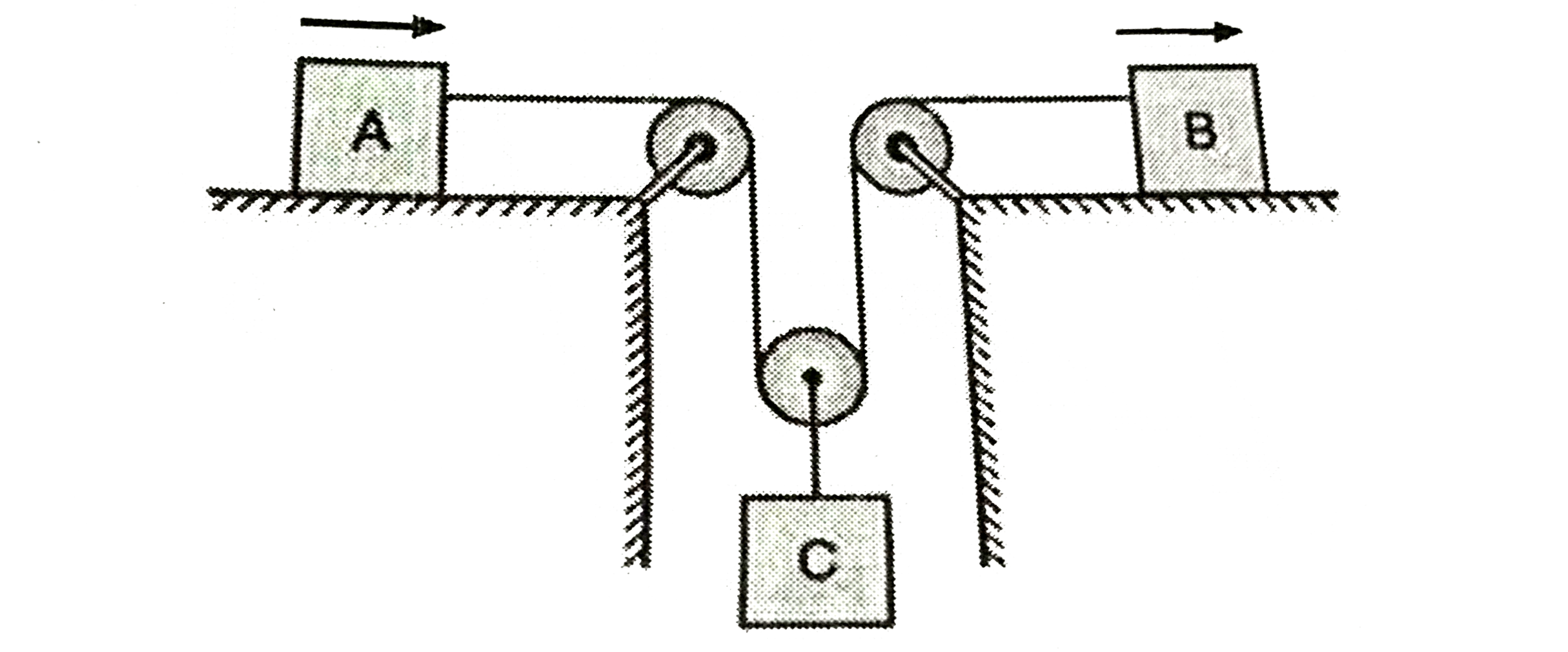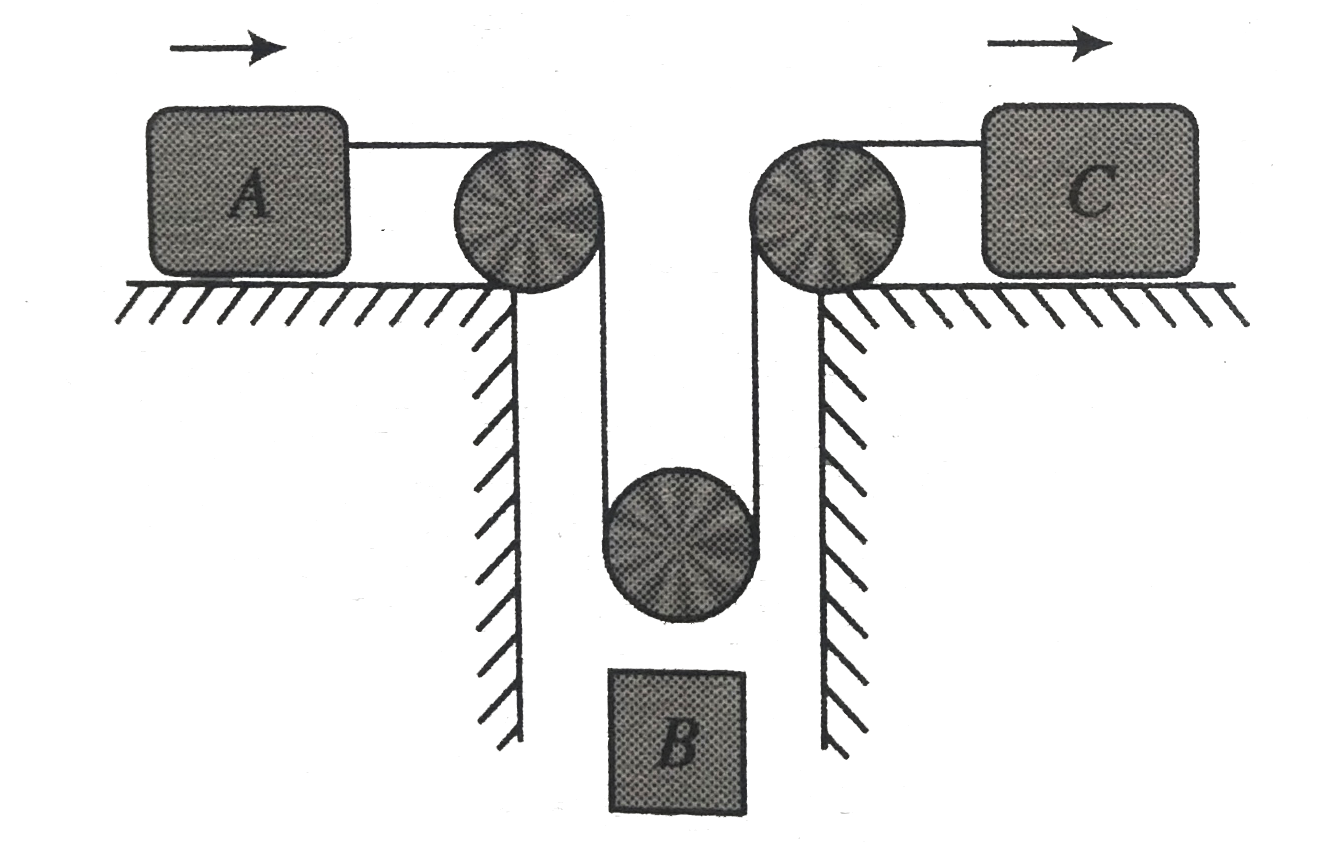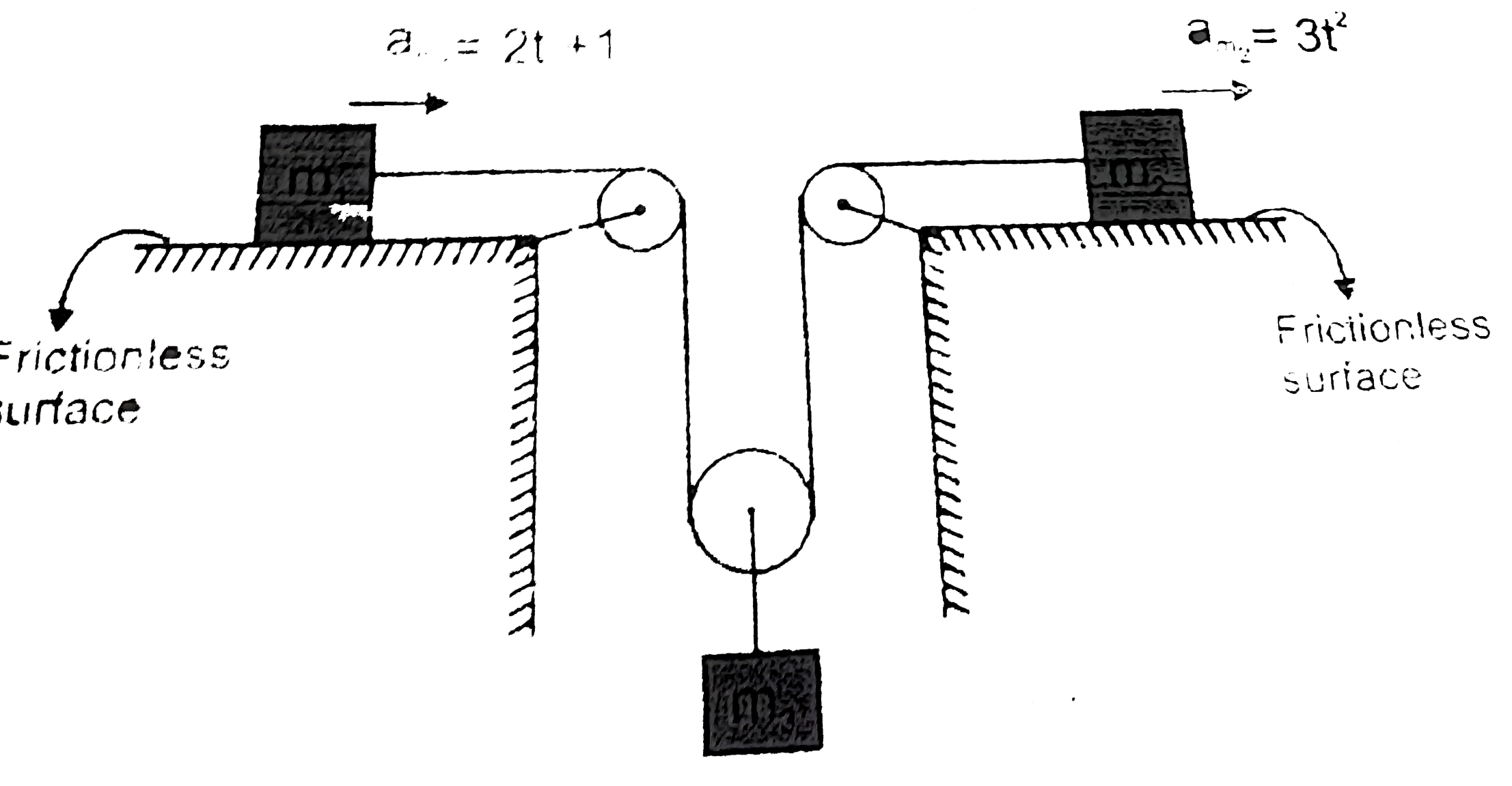Block A and C start from rest and move to the right with acceleration aA=12tm/s2 and aC=3m/s2 Here t is in seconds. The time when block B attain comes to rest is:

2s
1s
3/2s
1/2s
The correct Answer is:D
From contraint relation we can see that acceleration
block B is aB=(aA+aC2) with proper signs Hence
aB=(3−12t2)=1.5−6tordvBdt=1.5−6t
or vB∫0dvB=t∫0(1.5−6t)dtorvB=1.5t−3t2
or vB=0 at t=12s
Topper's Solved these Questions
- BOOK - GRB PUBLICATIONCHAPTER - FORCE AND NEWTONS LAWS OF MOTIONEXERCISE - More than one choice is correct15videos
FORCE AND NEWTONS LAWS OF MOTION
- BOOK - GRB PUBLICATIONCHAPTER - FORCE AND NEWTONS LAWS OF MOTIONEXERCISE - Assertion- Reason4videos
FORCE AND NEWTONS LAWS OF MOTION
- BOOK - GRB PUBLICATIONCHAPTER - FORCE AND NEWTONS LAWS OF MOTIONEXERCISE - Problem for practice30videos
FORCE AND NEWTONS LAWS OF MOTION
- BOOK - GRB PUBLICATIONCHAPTER - BASIC MATHEMATICSEXERCISE - Problems For Practice35videos
BASIC MATHEMATICS
- BOOK - GRB PUBLICATIONCHAPTER - FRICTION AND CIRCULAR MOTION EXERCISE - Comprehension type11videos
FRICTION AND CIRCULAR MOTION
Similar Questions
A particle starts from rest at t=0 and moves along a straight line with a variable acceleration given by a (t)=(3t+1)ms−2 ,where t],[ is in seconds.The velocity of the particle at t=4s is
View SolutionA particle starts from rest and moves with an acceleration of a={2+|t−2|}m/s2 The velocity of the particle at t=4 sec is
View Solution
Knowledge Check
- Question 1 - Select One
Block A and C starts from rest and move to the right with acceleration aA=12tms−2 and aC=3ms−2. Here t is in second. The time when block B again comes to rest is
 A2sB1sC3/2sD1/2s
A2sB1sC3/2sD1/2s - Question 2 - Select One
Blocks m1 and m2 starts from rest and move to right with accelerations as shown. If t is in second then the time when block m3 again come to rest from t=0 is (pulley and strings are ideal) :
 .A√52secB1+√52secC1+√32secD1sec
.A√52secB1+√52secC1+√32secD1sec - Question 3 - Select One
Two particles A and B start from rest at the origin x=0 and move along a straight line such that aA=(6t−3)ms−2 and aB=(12t2−8)ms−2 where t is in seconds based on the above facts answer the following questions,
Total distance travelled by B at t=4 s isA192 mB184 mC196 mD200m
A particle starts from rest, moving in a straight line with a time varying acceleration (inm/s2):a=30−152√t, where time is in seconds . The displacement of the particle in 4 seconds is .
View SolutionA car starts from rest and moves with uniform acceleration of 5m/s^(2 for 8sec .If the acceleration ceases after 8seconds then find the distance covered in 12s starting from rest (in metres)
View SolutionA particle starts from rest with a time varying acceleration a=(2t−4). Here t is in second and a in m/s2
The velocity time graph of the particle isView SolutionA body starting from rest is moving with a uniform acceleration of 8ms2. Then the distance travelled by it in 5th second will be
View SolutionA bus starts from rest and moves whith acceleration a=2ms2. The ratio of the distance covered in 6th second to that covered in 6 seconds is
View Solution

